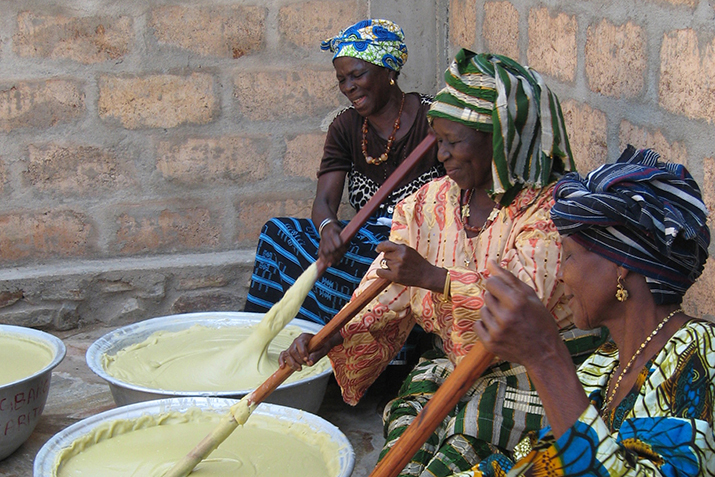Why Shea Butter is a Super Butter
- Madonna
- Jan 4, 2020
- 3 min read
Updated: Apr 10, 2022
If you are into skin care you have heard about Shea Butter; a nutrient rich fat extracted from the nut of the African shea tree found in East and West tropical Africa. Its use in skin care dates as far back as the time of Queen Cleopatra, who is said to have traveled with large jars full of Shea Butter to protect her skin and hair from the drying, damaging elements. The Queen of Sheba and Queen Nefertiti were also reportedly big fans of this plant-based butter and covered their bodies in the shea to help protect their skin against brutal desert sun and winds.
Since then, the magic behind the shea has gone global as research shares the effectiveness of shea butter in cooking, skin care, and hair growth. In its purest form, shea butter is edible and can be used as cooking oil often as a substitute for butter or another oil, or in a stir fry to give more flavor and a richer taste. It is also used in the production of chocolate and traditional drinks served in many African celebrations.
Shea butter has also been used for centuries as a hair conditioner and moisturizer because of its ability to nourish hair from root to the tip, while protecting against dryness and brittleness, repairing damage, all without leaving a sticky residue.
For skin, shea is applied to smooth, hydrate, soothe, and rejuvenate skin daily. Often used as a remedy to reduce stretch marks, redness under the nose during a cold or the flu, the appearance of under-the-eye bags and wrinkles. Shea butter is also used to soften hands, improve skin elasticity, reduce the appearance of cellulite, and improve the appearance of your lips. That is why it is the main ingredient in our body butters and lips scrubs.
About the Origin of Shea Butter This super skin food is produced in roughly 21 countries: Benin, Burkina Faso, Cameroon, Central African Republic, Chad, Ethiopia, Eritrea, Ghana, Guinea Bissau, Ivory Coast, Mali, Niger, Nigeria, Senegal, Sierra Leone, South Sudan, Sudan, Togo, Uganda, Democratic Republic of the Congo, Kenya and Guinea. Of these African nations, the main Shea nut exporting countries are Ghana and Burkina Faso. And as such, many of us have either come across or sought out shea butter from these West African countries.
These shea rich regions of Africa rely on it as a source of income for the women and communities they support. Its production and exportation is one of the driving forces for the economic growth of the nation. So much so that is has earned the title of "Women's Gold" for the crucial role it plays in the economy and livelihood of Western African women and their families.
These African mothers and sisters are tasked with crushing, mashing, and then boiling the shea nut to obtain the prized shea butter while preserving its skin nutrients. These are composed of • Oleic Acid: which maintains the softness, suppleness, and radiance of skin and hair and stimulates the growth of thicker, longer, and stronger hair • Stearic Acid: with cleansing properties that purge dirt, sweat, and excess sebum from hair and skin • Palmitic Acid: that has emollient properties and is active in softening hair without leaving a greasy or sticky residue. • Linoleic Acid: which promotes wound healing and moisture retention in skin and hair. • Cinnamic Acid Esters: which is responsible for the SPF properties in shea allowing it to act as a natural sunscreen with the ability to soothe inflammation, irritation, and redness. • Allantoin: which increases the water content of skin cells, making it an ideal ingredient for anti-aging products • Polyphenols (Tocopherol/Vitamin E): which among other things promote circulation and oxygen to the skin, and protect the skin against harmful UV radiation.
To get all these benefits and more, check out the CICCO AROMA store for your shea butter body butters and lips scrubs.
With care in mind,
Madonna
Cicco Aroma
#SayNo #SelfCare #selflove❤️ #selflovejourney #selfrespect #selfcompassion #realselfcare #selfcarefortherealworld #taketimeout #createboundaries #mentalhealth #journeytowellness #selfempowerment #socialanxiety #selfcareis



















Comments